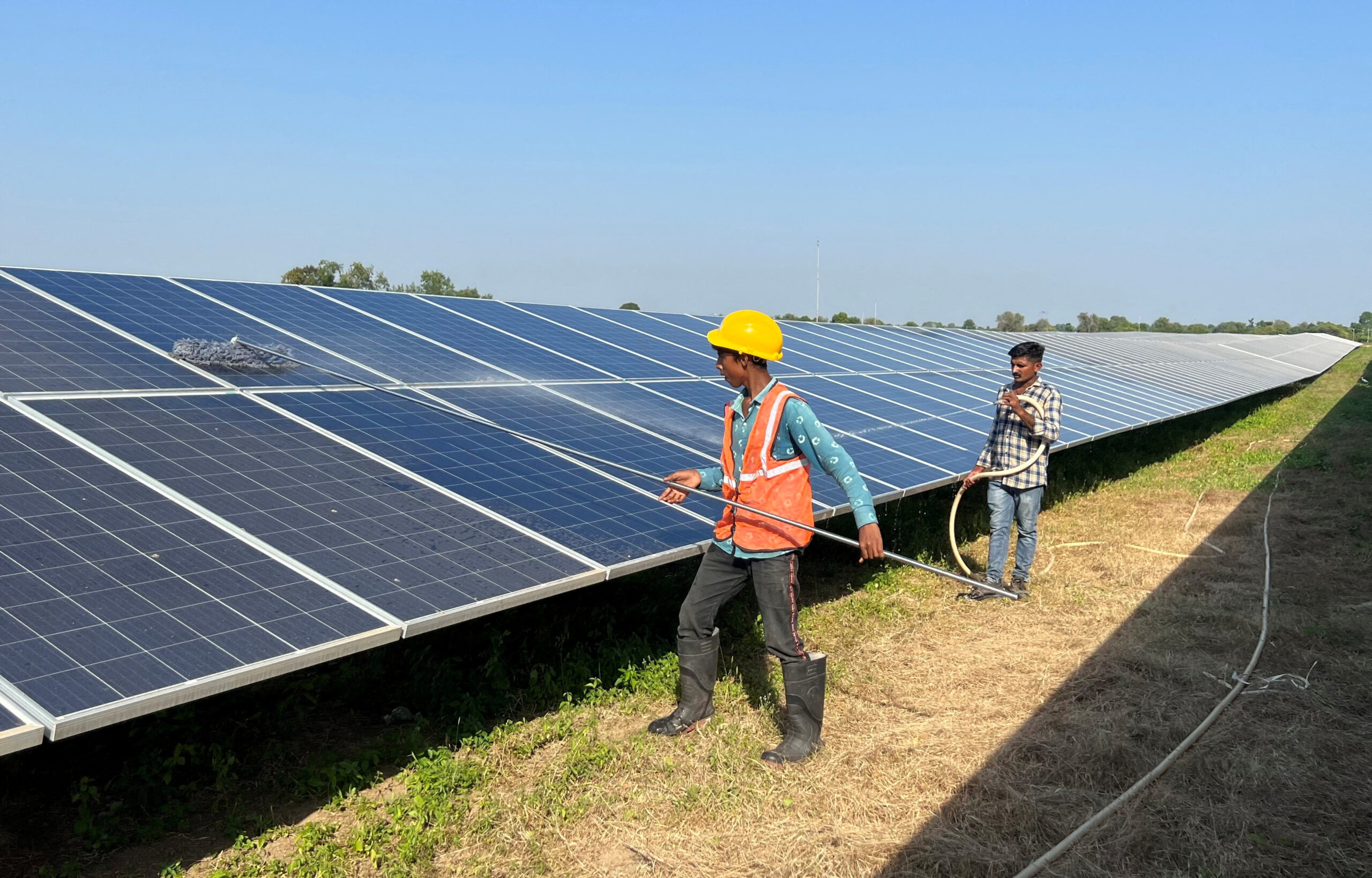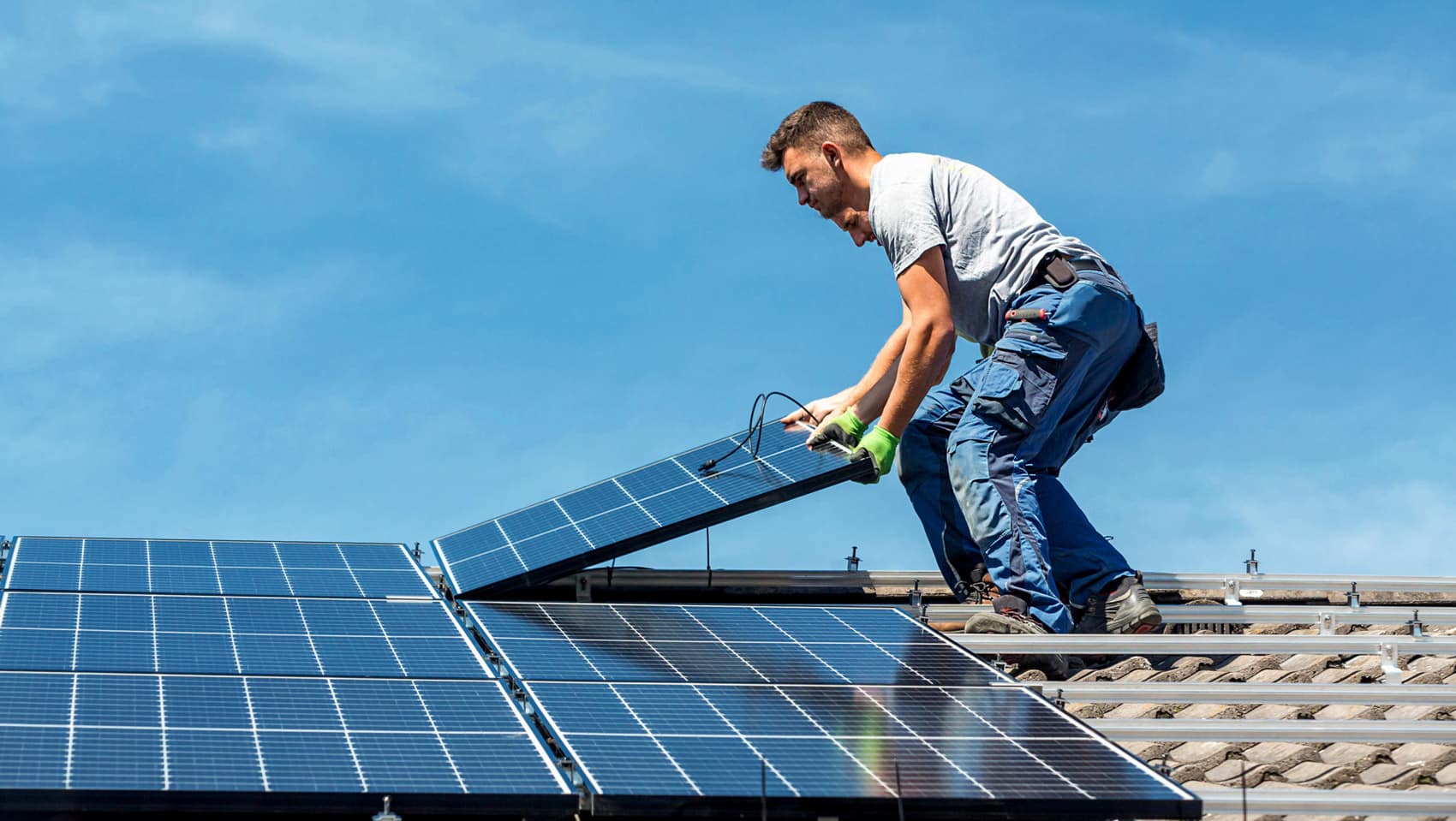
How to Prepare Your Property for Solar Panel Installation?
When you’re gearing up for solar panel installation, the first step is to evaluate your roof’s condition. It needs to be sturdy enough to support the panels, and you’ll want to check for any potential issues that could arise later. Next, you should assess your energy needs by looking at past utility bills and future consumption plans. But that’s just the beginning—understanding local regulations and choosing the right solar system can be a bit complex. Let’s explore what you need to do to guarantee a smooth installation process and maximize your investment.
Evaluate Your Roof Condition
Evaluating your roof’s condition is essential for a successful solar panel installation. You need to take into account various roof material types, as they can affect the longevity and efficiency of your solar panels. For more detailed information and professional guidance, you can visit our website.
For instance, asphalt shingles are generally more solar-friendly compared to older materials like wood shake or slate.
Next, assess the roof angle impact; a steeper angle can enhance solar energy capture, while a flat roof might require additional mounting solutions.
Check for any damages or weaknesses in your roofing system that could compromise the installation.
Ensuring your roof’s integrity will save you money and headaches down the line, allowing your solar panels to perform at their best for years to come.
Assess Energy Needs
After ensuring your roof is in good shape, the next step is to assess your energy needs.

Start by reviewing your past utility bills to understand your average monthly energy consumption. This’ll help you determine how much solar power you’ll need to generate.
Consider any upcoming changes, like adding new appliances or expanding your home, as these can affect your energy usage.
Implementing energy efficiency tips, like using LED lighting and smart thermostats, can also decrease your energy demand, making your solar system more effective.
Research Local Regulations
Before installing solar panels, you need to research local regulations that could affect your project.
Check zoning laws to guarantee your property is compliant, and review building codes to avoid any surprises.
Additionally, understanding the permitting requirements will help streamline the installation process.
Understand Zoning Laws
Maneuvering the maze of zoning laws is essential for a smooth solar panel installation.
Start by researching your local zoning restrictions, as these can vary considerably by municipality. You’ll want to find out if your area has specific rules regarding the placement of solar panels, including property setbacks.
These are the minimum distances your solar panels must be from property lines or neighboring structures. Understanding these regulations can save you time, money, and potential headaches later on.
Checking with your local planning or zoning office can provide you with the details you need. By ensuring your solar installation complies with zoning laws, you’ll pave the way for a hassle-free project that fits within the legal framework of your community.
Check Building Codes
While you’re steering through the preparations for solar panel installation, it’s crucial to check the building codes in your area.
Different regions have specific regulations that dictate how and where you can install solar panels, affecting both your installation costs and eligibility for solar panel incentives.
You’ll want to verify your property complies with height restrictions, setback requirements, and structural integrity standards. Ignoring these codes could lead to fines or delays in your project.
Additionally, understanding local regulations can help you maximize the financial benefits available through incentives.
Permitting Requirements Overview
When preparing for solar panel installation, understanding permitting requirements is vital. Each locality has its own regulations, so it’s important to research what’s needed in your area.
Start by checking with your local building department to find out about required permits and any associated fees. These permits can influence your financing options, as some lenders may require proof of compliance before approving loans.
You should also consider how permitting will affect your installation timelines; delays in obtaining permits can push back your project start date.
Choose the Right Solar System
Choosing the right solar system for your property can greatly impact your energy efficiency and savings.
Start by researching different solar panel types, such as monocrystalline, polycrystalline, and thin-film. Each type has its advantages and drawbacks regarding efficiency, cost, and space requirements.
Monocrystalline panels are often the most efficient but can be pricier, while polycrystalline panels offer a more budget-friendly option with slightly lower efficiency. Thin-film panels are lightweight and flexible but may require more space for the same energy output.
Consider your property’s energy needs, budget, and available space when selecting the right system. A well-chosen solar system not only maximizes energy efficiency but also guarantees you get the most value from your investment in renewable energy.
Clear Surrounding Areas
To get your property ready for solar panel installation, start by removing any obstructions and debris from the installation area.
Make certain to trim back overhanging branches that could cast shadows on your panels.
A clear space guarantees your solar system operates efficiently and effectively.
Remove Obstructions and Debris
Before installation begins, it’s imperative to clear the area around your property to guarantee a smooth solar panel setup. Start by removing any obstructions and debris that could hinder the installation process. This includes trash, tools, and furniture. A clean area not only facilitates the installation but also guarantees ideal solar panel orientation for maximum energy capture.
Additionally, conducting a shading analysis is essential to identify any potential sources of shade, such as fences or structures. By addressing these issues beforehand, you’ll help installers work more efficiently, reduce delays, and enhance the overall performance of your solar system.
Taking these steps now will pay off in the long run, providing you with better energy output and sustainability.
Trim Overhanging Branches
While preparing for solar panel installation, it’s crucial to trim any overhanging branches that could cast shade on your panels. Shade can greatly reduce the efficiency of your solar system, leading to poor energy production.
By performing tree pruning, you guarantee that your panels receive maximum sunlight throughout the day.
Additionally, consider the long-term implications of solar panel maintenance. Regularly check your trees and trim them as needed to prevent future shading issues.
You might also want to consult a professional arborist to safely manage larger trees. Keeping the surrounding areas clear not only enhances energy output but also maintains the aesthetic appeal of your property.
With proper care, your solar investment will yield its full potential.
Hire Qualified Professionals
Hiring qualified professionals is essential for a successful solar panel installation. They bring the expertise necessary to assess your property, ensuring you maximize solar panel benefits like energy savings and increased home value.
Professionals will evaluate your roof’s condition, orientation, and shading to create an ideal setup.
Choosing skilled installers also helps streamline the installation timeline, as they know the best practices and local regulations. They can efficiently handle permits, inspections, and any potential issues that arise during the process.
By hiring the right team, you’ll not only enhance the quality of your installation but also save time and avoid costly mistakes.
Take the time to research and select experienced professionals who specialize in solar energy systems.

